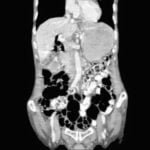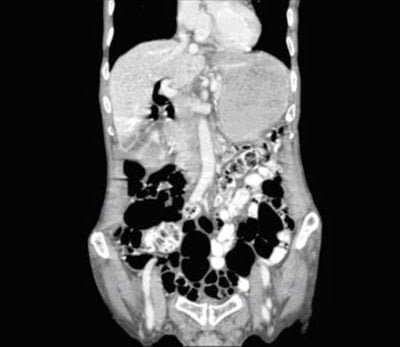Postnatally Acquired COVID-19 in a Neonate: Case Report from Saudi Arabia”
Contributed by
Dr.Ghulam Nabi, MD.
Pediatric Consultant and Neonatologist.
Bugshan Hospital Jeddah, 21432.
P.O. Box 5860, Kingdom of Saudi Arabia.
Mobile. 00966 502310661. E-mail: drgnabi2@gmail.com
Neonatal COVID-19 remains rare and generally mild. Early detection, isolation, and supportive treatment are crucial for favorable outcomes. Further research is needed to understand long-term effects and optimize management strategies for this vulnerable population.
Introduction
Since the onset of the COVID-19 pandemic, much has been learned about its clinical impact on various age groups. However, data regarding neonates remains limited. Neonatal infection may occur due to vertical transmission, postnatal exposure, or environmental contact. Though most neonates develop mild illness, the potential for serious complications exists, particularly in those with comorbid conditions or prematurity. This case report highlights a full-term neonate with SARS-CoV-2 infection, managed successfully with supportive care.
Case Presentation
A 14-day-old female neonate, born at term via normal spontaneous vaginal delivery, presented to the Neonatal Intensive Care Unit with a two-day history of cough and shortness of breath. The infant was exclusively breastfed. There was no significant obstetric, perinatal, or family history of illness.
On clinical examination, the baby was alert and active with normal growth parameters. Vital signs were stable, and oxygen saturation was 97% on room air. Auscultation revealed basal rhonchi; other systemic examinations were unremarkable.
Initial diagnosis was bronchiolitis. Laboratory workup, including complete blood count, CRP, and cerebrospinal fluid analysis, was within normal limits. Chest radiograph revealed bilateral pneumonitis. RT-PCR testing of a nasopharyngeal swab confirmed SARS-CoV-2 infection.
The patient was placed in isolation and managed with supportive measures, including oxygen therapy and empiric antibiotics to treat suspected bacterial co-infection. No antiviral medications were administered.
The neonate improved clinically over the following week. Repeat COVID-19 PCR and chest radiograph were both negative/normal. She was discharged in a stable condition after seven days, with instructions for follow-up in three days.
Discussion
COVID-19 in neonates is uncommon and often presents with non-specific symptoms such as respiratory distress, fever, or feeding difficulties. Transmission may occur vertically (transplacental), intrapartum, or postnatally. Our case suggests postnatal transmission, as the neonate was asymptomatic at birth and began exhibiting symptoms at two weeks of age.
Despite the immature immune system in neonates, most cases, like the one presented, exhibit a benign clinical course. The mechanisms for this mild phenotype are not fully understood but may involve passive immunity via maternal antibodies or immune system differences in neonates.
Current literature indicates a generally favorable prognosis for neonatal SARS-CoV-2 infection, though rare cases of severe illness and complications have been reported. Preventive strategies remain crucial: maternal vaccination, strict hygiene, and infection control practices are recommended, especially in the NICU setting.
Breastfeeding is encouraged, provided appropriate precautions (e.g., hand hygiene, masking) are observed, as breast milk may offer protective antibodies against SARS-CoV-2.
Conclusion
This case reinforces the generally mild nature of COVID-19 in neonates and highlights the importance of early recognition, isolation, and supportive care. Although outcomes are typically favorable, ongoing surveillance and research are needed to understand long-term consequences and to establish standardized management protocols.
References
- Gale, C. et al. Characteristics and outcomes of neonatal SARS-CoV-2 infection in the UK: a prospective national cohort study using active surveillance. Lancet Child Adolesc Health. https://doi.org/10.1016/S2352-4642(20)30342-4 (2020).
- Cavicchiolo, M. E. et al. Universal screening of high-risk neonates, parents, and staff at a neonatal intensive care unit during the SARS-CoV-2 pandemic. Eur J Pediatr. 179, 1949–1955 (2020).
- Ronchi, A. et al. Evaluation of rooming-in practice for neonates born to mothers with severe acute respiratory syndrome coronavirus 2 infection in Italy. JAMA Pediatr. 175, 260–266 (2021).
- Zdanowski, W., Waśniewski, T. Evaluation of SARS-CoV-2 spike protein antibody titers in cord blood after COVID-19 vaccination during pregnancy in Polish healthcare workers: preliminary results. Vaccines. 9, 675 (2021).
- Klein, J. D. et al. Promoting and supporting children’s health and healthcare during COVID-19—International Pediatric Association Position Statement. Arch Dis Child. 105, 620–624 (2020).
Join the mailing list!
Get the latest articles delivered right to your inbox!



